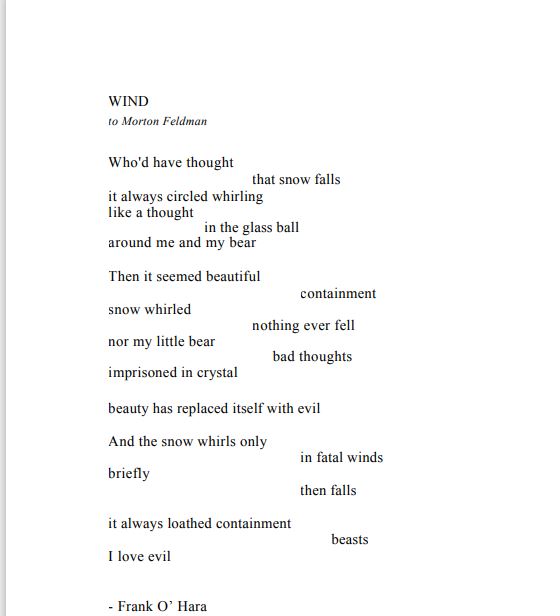droodzilla
pfm Member
I've been thinking about this one a lot lately:
Call the roller of big cigars,
The muscular one, and bid him whip
In kitchen cups concupiscent curds.
Let the wenches dawdle in such dress
As they are used to wear, and let the boys
Bring flowers in last month's newspapers.
Let be be finale of seem.
The only emperor is the emperor of ice-cream.
Take from the dresser of deal,
Lacking the three glass knobs, that sheet
On which she embroidered fantails once
And spread it so as to cover her face.
If her horny feet protrude, they come
To show how cold she is, and dumb.
Let the lamp affix its beam.
The only emperor is the emperor of ice-cream.
It's all nicely unpacked here:
https://www.poetryfoundation.org/articles/70138/wallace-stevens-the-emperor-of-ice-cream
I found the comments about that notoriously difficult seventh line especially helpful.
Why now? Probably because the death of the Queen has put thoughts of mortality into my head (not that I plan to shuffle off anytime soon). Also it's hard to read about the funeral arrangements being made for the poor old woman in the Stevens poem, without contrasting it with the opulence of the state funeral we are all witnessing.
But this isn't another anti-monarchy thread. More than anything, I think it's a great poem, weighty with moral seriousness, despite the occasionally playful language.
Feel free to share any other poems that grab you here - serious or not.
Call the roller of big cigars,
The muscular one, and bid him whip
In kitchen cups concupiscent curds.
Let the wenches dawdle in such dress
As they are used to wear, and let the boys
Bring flowers in last month's newspapers.
Let be be finale of seem.
The only emperor is the emperor of ice-cream.
Take from the dresser of deal,
Lacking the three glass knobs, that sheet
On which she embroidered fantails once
And spread it so as to cover her face.
If her horny feet protrude, they come
To show how cold she is, and dumb.
Let the lamp affix its beam.
The only emperor is the emperor of ice-cream.
It's all nicely unpacked here:
https://www.poetryfoundation.org/articles/70138/wallace-stevens-the-emperor-of-ice-cream
I found the comments about that notoriously difficult seventh line especially helpful.
Why now? Probably because the death of the Queen has put thoughts of mortality into my head (not that I plan to shuffle off anytime soon). Also it's hard to read about the funeral arrangements being made for the poor old woman in the Stevens poem, without contrasting it with the opulence of the state funeral we are all witnessing.
But this isn't another anti-monarchy thread. More than anything, I think it's a great poem, weighty with moral seriousness, despite the occasionally playful language.
Feel free to share any other poems that grab you here - serious or not.


